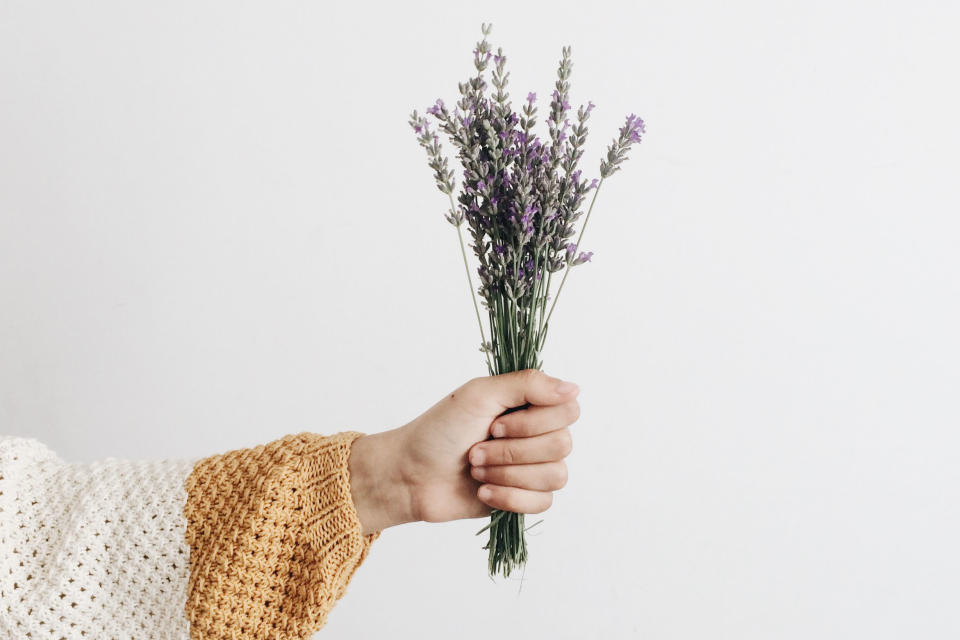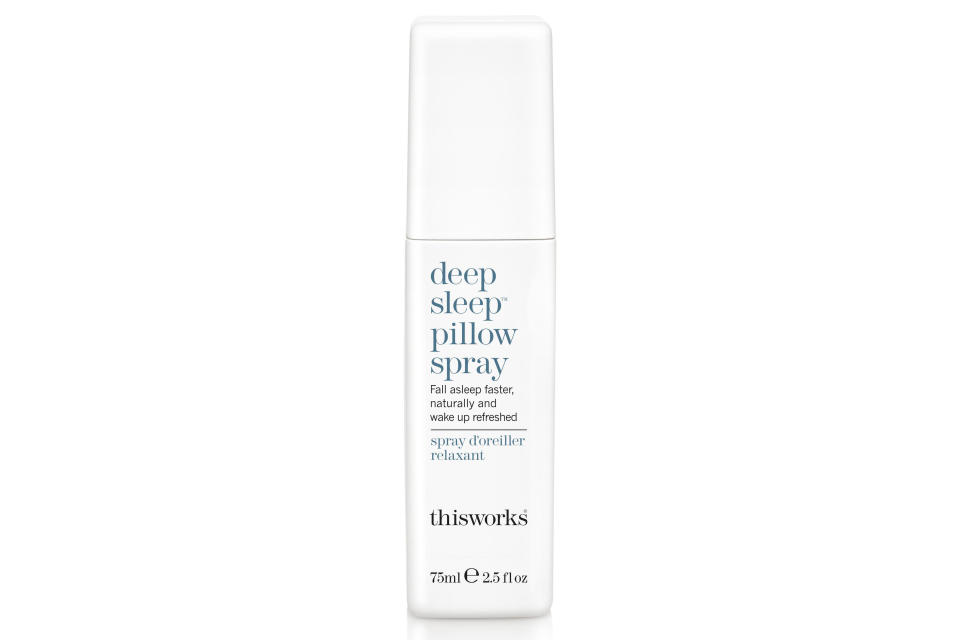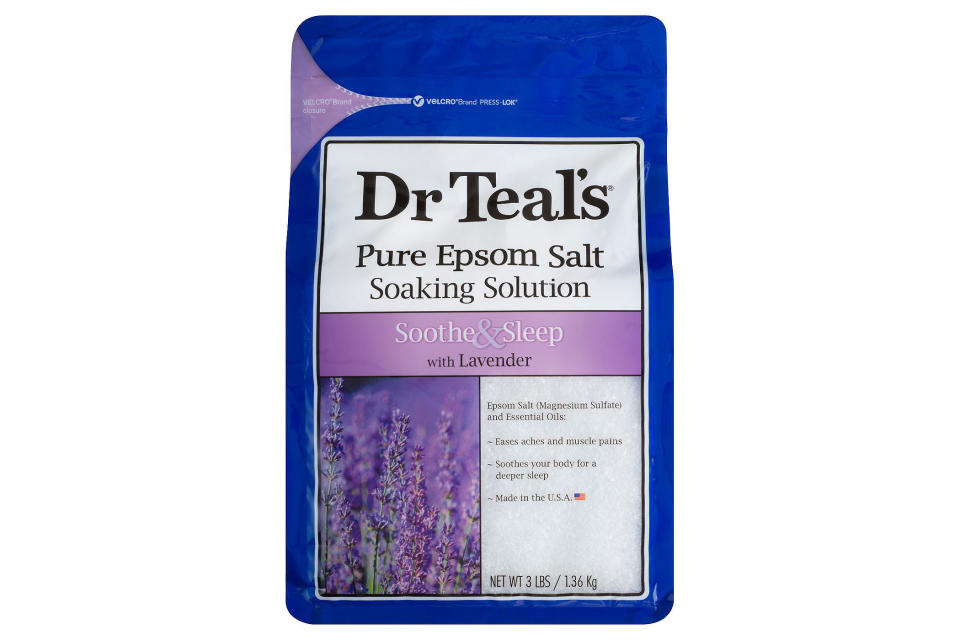Some beauty products claim they can help you sleep—here’s how they work
A good night’s sleep has always been essential for feeling and looking your best, and in past years it’s become trendy to get a solid eight hours of quality shut-eye. Parties that require you to stay up past 11 p.m. have been eschewed in favor of going to bed early—and since beauty trends often follow in the footsteps of wellness trends, beauty products that claim to help with sleep have swept the market.
There are bath soaks, weighted blankets, powdered drinks packed with magnesium, scented pillow sprays, and face oils and body wash filled with essential oils that are supposed to help you relax. But do these products—which blur the line between self-care and sleep aid—actually work? Some sleep-focused beauty products (different from nighttime skin care products, which work on your skin overnight but don’t claim to improve sleep) will make your skin feel soft and nourished, but the reason they’re relaxing is often because of one humble but mighty ingredient: lavender.

“There is substantial evidence that lavender improves sleep quality, aids in relaxation and pain relief, and reduces anxiety,” explains Dendy Engelman, M.D., A New York-based dermatologist. “There are many reasons that someone would have trouble sleeping, and given that lavender addresses many issues, it’s widely recognized as a go-to sleep aid.”
While we’re talking up lavender, it’s important to mention that it can also improve “cognitive function, mood, and sleep quality, [and it] also increases blood melatonin levels—melatonin is the sleep hormone,” says Heather Hausenblas, Ph.D., a kinesiologist in Florida. You may be able to get the same feeling of calm by diffusing lavender essential oil or smelling a sachet of the dried flower, both of which are more affordable options than many of the sleep-promoting beauty products on the market.
This is not to say that you shouldn’t use a specialty sleep product; Dr. Engelman says that she uses a lavender sleep mist on her pillow at night. “The benefits you receive from something like this is aromatherapy,” she adds. “A cleanser is not on the body long enough to have any profound effects. However, taking a bath with added bath salts that relax your muscles and mind could aid in sleep quality.”

The reason you may feel relaxed in a bubble bath while using a sleep bath soak is not necessarily because of the sleep product, but because of the temperature of the bathwater.
“Taking a hot bath about 90 minutes before bed helps people fall asleep more quickly,” Dr. Hausenblas explains. “The hot water changes your body’s core temperature so that you go to bed with a lower temperature. A drop in temperature helps signal to the body that it’s time for bed.” She adds that the timing and the temperature of the bath are both important factors: Ideally, the water temperature should be between 104° to 109°F and the bath should happen one to two hours before bed.

Studies show that lavender’s scent can improve mood and aid in relaxation. If you’re not a bath person, you can diffuse some lavender essential oils to help you unwind before bed. However, before you impulse-buy, remember that not all essential oils are created equally. Many companies claim that their essential oils are ‘therapeutic grade,’ explains Dr. Hausenblas, but she says that that’s just a marketing term. (This is similar to terms like ‘non-toxic’ or ‘clean beauty,’ which aren’t regulated and don’t carry any universal meaning.)
Dr. Hausenblas suggests the following tips for using essential oils:
Choose dark-colored glass containers. “Pure essential oils are highly concentrated, and they can dissolve plastic bottles over time, tainting the oil,” she says.
Avoid anything that has “fragrance oils” listed as an ingredient. “Fragrance oils are made from essential oils combined with chemicals—or entirely from chemicals,” Dr. Hausenblas explains.
If you’re having trouble falling or staying asleep, you probably can’t expect a whiff of lavender to magically put you to sleep as soon as your head hits the pillow (though that would be awesome). “The biggest hindrance to sleep in adults is stress,” says Christine Stevens, an adult sleep coach and owner of Sleep Solutions by Christine. “There’s no way to avoid all stress, but we can control how we manage it. Things like exercise, hanging out with friends, or talking with a therapist can help manage the stressors that affect us.” These stress-relieving practices can lead to better sleep.
That said, using a beauty product that claims to help with sleep (whether it’s a soak or a pillow mist) isn’t going to hurt. Think of it kind of like having a nice set of pots and pans: They’re not going to cook for you, just as a sleep product is going to make you fall asleep, but they may make the process a little easier and more enjoyable.

In addition to lavender, you can look out for products that contain bergamot, sandalwood, or magnesium. “It’s a little-known fact that magnesium is much better absorbed transdermally than through the GI tract,” Dr. Engelman says. “This is why using magnesium oil (magnesium chloride) in a spray form or magnesium sulfate (Epsom salts) in a bath or soak makes better sense than oral supplementation.” She adds that the mineral can also lower cortisol levels, making you feel calmer at bedtime.
If you’re already sleeping well but want to give yourself a little boost, a nighttime sleep product can be a great choice. But if you’re not quite ready to commit to a sleep-targeted beauty product, you can always add a few drops of a skin-friendly essential oil to your favorite moisturizer (or, as we call it, moisturi-zzz-er).

 Yahoo News
Yahoo News 
